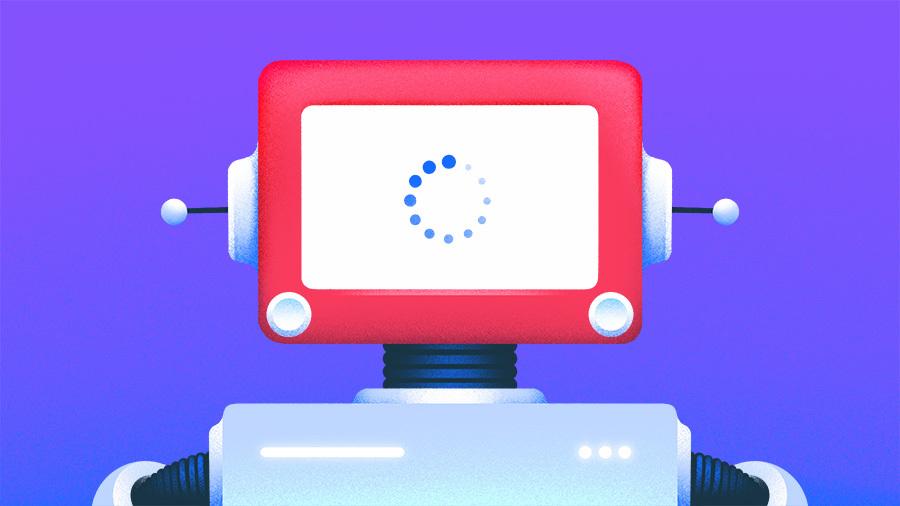AI 🍂Wednesday Buzz: Microsoft Leak, UK Rules, Google's Microscope, Oracle's Voice, Writer's $100M
🖥️ Microsoft's 38TB data leak
💂♂️ UK's fresh AI transparency rules
🔎 Google & DoD's cancer-detecting microscope
🏥 Oracle's Voice AI in healthcare
✍️ Writer startup nets $100M funding
For full details, keep reading!👇
Welcome to Wednesday's AI extravaganza! Get ready for an exhilarating dive into the latest developments in the world of artificial intelligence. From major data leaks to cutting-edge innovations in healthcare and the impressive funding secured by a promising startup, this edition is packed with exciting AI updates that are sure to pique your curiosity. Let's embark on this thrilling journey through the AI landscape and uncover the transformative stories that are shaping our digital future.
1. Microsoft AI researchers inadvertently reveal 38TB of data
Wiz Research discovered a major data exposure incident involving Microsoft's AI GitHub repository, inadvertently revealing over 30,000 internal Microsoft Teams messages along with a backup of two employees' workstations. The exposure, caused by a misconfigured SAS token, led to the disclosure of 38 terabytes of private data. This incident highlights the risks associated with handling massive amounts of training data in AI development. SAS tokens, used for sharing access to Azure Storage data, can inadvertently grant excessive permissions, making them a potential security hazard. Proper management and monitoring of SAS tokens are crucial to mitigate these risks. Recommendations include using Service SAS with Stored Access Policies for external sharing and setting time limits on User Delegation SAS tokens. Additionally, dedicated storage accounts for external sharing can limit potential exposure. Monitoring SAS token usage and employing secret scanning tools are further steps to enhance security.

2. New AI Principles in the UK Prioritize Transparency and Accessibility
The UK Competition and Markets Authority (CMA) introduced principles to ensure accountability and transparency in AI development. These aim to prevent tech giants from monopolizing AI, fostering competition, and safeguarding consumer interests. CMA CEO Sarah Cardell emphasized AI's potential to enhance productivity but warned against concentration of power among a few players. The principles, announced ahead of a global AI safety summit, will guide the CMA's oversight of digital markets. They invite input from major AI developers like Google, Meta, OpenAI, Microsoft, NVIDIA, and Anthropic, along with government and academic stakeholders. The principles also address input accessibility, diverse business models, and flexibility in using multiple AI models. The UK has opted to divide AI regulation responsibilities among existing bodies, rather than creating a new regulator. The US and G7 nations are also considering AI regulations.
/cloudfront-us-east-2.images.arcpublishing.com/reuters/Q7DGSD6GGZPGLDN3TTUDQQPPBY.jpg)
3. Google and the Department of Defense are collaborating on the development of an AI-enhanced microscope to aid physicians in detecting cancer.
Google and the U.S. Department of Defense have developed an AI-powered microscope, the Augmented Reality Microscope (ARM), designed to assist pathologists in diagnosing conditions like cancer. The ARM uses AI to quickly analyze tissue samples, helping pathologists make more accurate diagnoses. While still in the early stages, the technology could be particularly beneficial for pathologists in smaller labs or remote areas. There are currently 13 ARMs in existence, with each unit costing health systems between $90,000 and $100,000. The ARM is not intended to replace digital pathology systems but can complement them by offering a more cost-effective solution.

4. Oracle introduces the Clinical Digital Assistant, integrating voice-activated AI into healthcare.
Oracle is introducing an AI-powered Clinical Digital Assistant to enhance electronic health record (EHR) solutions, streamlining administrative tasks for caregivers. This allows them to focus more on patient care. The system operates through voice or text commands, providing clinicians with rapid access to essential information during appointments. The assistant retrieves necessary data from the database, ensuring a seamless treatment process. Additionally, it assists in administrative duties like note-taking and suggesting follow-up actions. This innovation aims to reduce clinician burnout and enhance patient interactions. Patients can also utilize the assistant for tasks like appointment scheduling and bill payments, as well as seeking medical information through natural language questions. This initiative is part of Oracle’s broader effort in generative AI.

5. Writer startup nets $100M funding
San Francisco-based AI startup, Writer, has secured a $100 million funding round led by Iconiq Growth, valuing the company at $500 million. Writer's generative AI platform aids businesses in generating written content across various departments like operations, sales, marketing, and more. The company has seen a tenfold increase in revenue over the past two years, boasting clients including Spotify, L’Oreal, and Uber. CEO May Habib emphasized the platform's ability to deliver high-quality results, citing the challenges CIOs face when building internal generative AI applications. The writer's previous funding rounds included a $5 million seed round in 2020 and a $21 million Series A round in 2021. San Francisco's AI sector has seen several substantial funding rounds recently, including Anthropic's $100 million round, Adept AI's $350 million Series B, and OpenAI's multibillion-dollar investment from Microsoft.

Today's AI updates have illuminated the dynamic landscape of artificial intelligence. From Microsoft's data leak reminder to the UK's strides in AI transparency, and the remarkable cancer-detecting microscope by Google and the DoD, it's clear that AI is pushing boundaries in data security, accountability, and healthcare innovation. Oracle's Voice AI promises to transform healthcare administration, while Writer's impressive $100 million funding signals AI's growing influence in content generation. These developments underscore AI's transformative potential across diverse sectors. As we navigate this AI-driven era, one thing is certain: the future is filled with exciting possibilities and continuous advancements.









